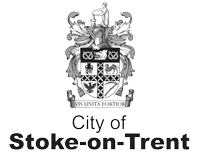Summary of needs and disabilities
Tourette's syndrome
Tourette’s syndrome is a neurological condition (affecting the brain and nervous system), characterised by a combination of involuntary noises and movements called tics.
It usually starts during childhood and continues into adulthood. In many cases Tourette's syndrome runs in families and it's often associated with obsessive compulsive disorder (OCD) or attention deficit hyperactivity disorder (ADHD).
Symptoms of Tourette's syndrome
If your child has tics, it doesn't necessarily mean they have Tourette’s syndrome.
Children often develop tics before growing out of them after several months. These are known as transient tics.
For tics to be classified as Tourette’s syndrome, they have to be present for at least a year and include at least one vocal tic.
Tics
Tics can be:
- vocal (sounds) - such as grunting, coughing or shouting out words ·
- physical (movements) - such as jerking of the head or jumping up and down.
They can also be:
- simple making a small movement or uttering a single sound
- complex - making a series of physical movements or speaking a long phrase.
Most people diagnosed with Tourette’s syndrome have a combination of physical and vocal tics, which can be both simple and complex.
The tics don't usually pose a serious threat to a person's overall health, although physical tics, such as jerking of the head, can often be painful.
When the tics are more frequent or severe, medication can help to improve them, such as alpha2-adrenergic agonists, muscle relaxants and dopamine antagonists.
Surgery may be recommended in particularly severe cases that don't respond to treatment. However, surgery for Tourette's syndrome is rare.
Premonitory Sensations
Most people with Tourette’s syndrome experience uncomfortable or unusual feelings before having a tic. These feelings are known as premonitory sensations.
Premonitory sensations are only relieved after the tic has been carried out, in a similar way to how an itch can only be relieved by scratching it.
Examples of premonitory sensations include:
- a burning feeling in the eyes that feels as if it can only be relieved by blinking;
- tension in a muscle that can only be relieved by twitching or stretching the muscle;
- a dry or sore throat that can only be relieved by grunting or by clearing the throat;
- an itchy joint or limb that can only be relieved by twisting the joint or limb.
What causes Tourette's syndrome?
The cause of Tourette’s syndrome is unknown. However, it's thought to be linked to problems with a part of the brain known as the basal ganglia, which helps regulate body movements.
In people with Tourette’s syndrome, the basal ganglia 'misfire', resulting in the characteristic tics.
Destroying the myths about Tourette’s syndrome
One of the most common beliefs is that all people with TS swear uncontrollably. However, only 10 per cent of people with TS have a swearing tic, which is called coprolalia.
Each person with TS has different tics and will experience diverse symptoms.
For people with more severe TS the impact on their quality of life is significant.
- Physically - tics can cause damage to joints or self-injury, eg hitting oneself
- Educationally - TS can make it impossible to follow what is going on in class
- Economically - TS can be a barrier to employment
- Socially - TS can lead to ridicule, bullying and social exclusion.
In many cases TS is linked to other behaviours, most often Obsessive Compulsive Disorder (OCD) and Attention Deficit Disorder (ADD). For these reasons treatment of TS is very particular to each individual and should be discussed with a TS specialist.
Associated Conditions
Children with Tourette’s syndrome will usually also have one or more other developmental or behavioural conditions.
The two most commonly reported conditions are:
- obsessive compulsive disorder (OCD) - a condition characterised by unwanted persistent obsessive thoughts and useless compulsive behaviour, for example, a compulsion to keep washing your hands due to a fear of catching a serious illness
- attention deficit hyperactivity disorder (ADHD) - a behavioural condition with symptoms such as a short attention span, being easily distracted, a tendency to be impulsive and not being able to sit still because you are constantly fidgeting (hyperactivity).
Children with Tourette’s syndrome may also have other behavioural problems, such as flying into a sudden rage, or behaving inappropriately or anti-socially with other children.
In many cases, these associated conditions and behavioural problems can be more disruptive and troublesome than the tics of Tourette’s syndrome, and are the main focus of treatment.
Treating Tourette’s syndrome
There's no cure for Tourette's syndrome, but treatment can help to control the symptoms.
If your child is diagnosed with Tourette's syndrome, their treatment plan may involve a type of psychological therapy, known as behavioural therapy.
